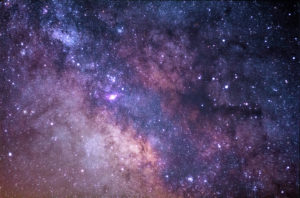
“Humans have limitations, and no one knows this better than scientists. But a multitude of aspects of the natural world that were considered miraculous only a few generations ago are now thoroughly understood in terms of physics and chemistry. At least some of the mysteries of today will be comprehensively solved by our descendants. The fact that we cannot now produce a detailed understanding of, say, altered states of consciousness in terms of brain chemistry no more implies the existence of a “spirit world” than a sunflower following the Sun in its course across the sky was evidence of a literal miracle before we knew about phototropism and plant hormones.”
—Carl Sagan, 1995
December is a time for remembrance. We connect to others while simultaneously taking stock of another year gone by. A turn of the calendar. Perhaps some more wrinkles and a few more gray hairs. We scroll though celebrity deaths, ongoing political shenanigans, follow the latest natural disaster, or crisis, or war with angst for the future. Maybe we also focus on love and kindness if we’re eternal optimists as many in our humanist camp tend to be. We may glitter and glow from new relationships or mourn the loss of friends and family. One thing is for certain, change is constant both in terms of deprivation and the gains we make across the many social worlds we all inhabit...
When Sagan reminded us that we are all “star stuff” he was speaking about our connection to each other and the universe. An idea that demands we rethink every “us and them” scenario. Every drop of spilled blood over the eons in hate. Every war for resources and territory that have plagued and continues to plague our species on this small blue dot of a planet.
Conversely, Christopher Hitchens was tonally very different from Sagan. Hitchens was a born fighter, a journalist and a provocateur... The Humanist, continues
My comment:
I admire them both, but Sagan was more than just "tonally" different... his less pugilistic style also reflected a greater sympathy for the varieties of ways in which humans seek meaning and value in their lives. Ann Druyan rightly called attention to Carl's appreciation of William James's sense of religion as a feeling of being at home in the cosmos, a sense which he shared but which (like James) he said had less to do with God than with a deep aspiration for "life, more life..." And that makes all the more poignant the early exits of both Carl and Christopher.
No comments:
Post a Comment